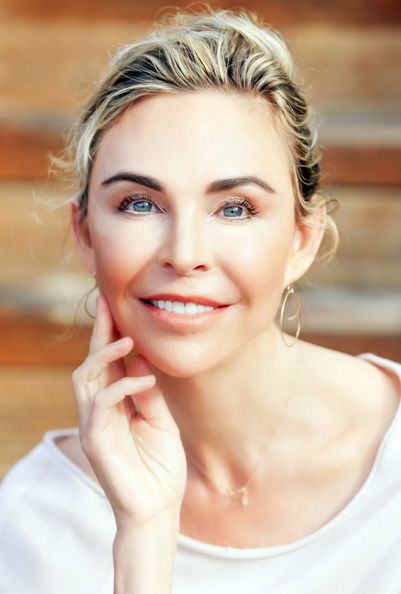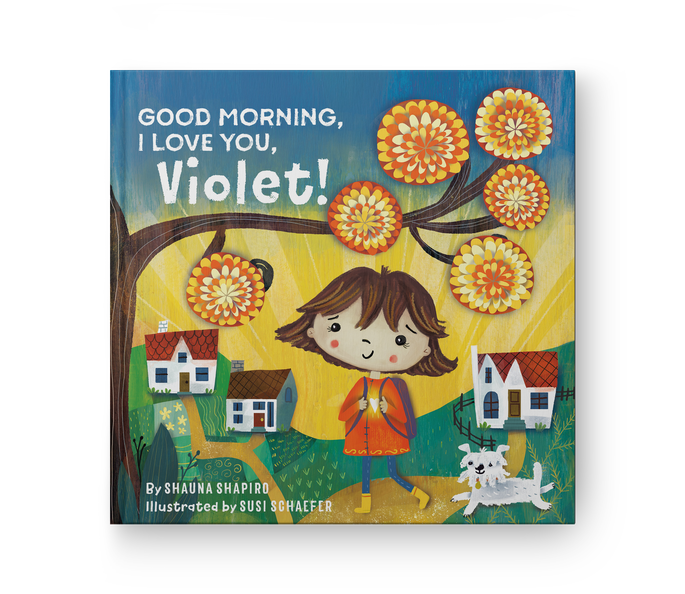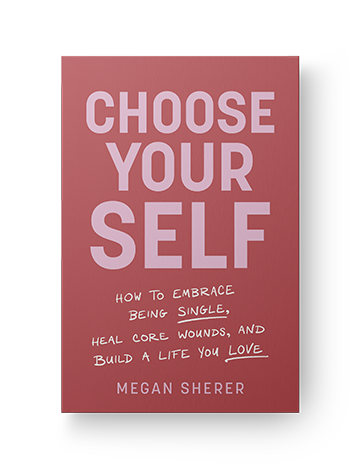
Shauna Shapiro, PhD, is a bestselling author, clinical psychologist, and internationally recognized expert in mindfulness and self-compassion. She is a professor at Santa Clara University and has published over 150 papers and three critically acclaimed books, translated into 16 languages. Dr. Shapiro has presented her research to the king of Thailand, the Danish government, Bhutan’s Gross National Happiness Summit, and the World Council for Psychotherapy, as well as to Fortune 100 companies including Google, Cisco Systems, and LinkedIn. Her work has been featured in the Wall Street Journal, Forbes, Oprah, NPR, and American Psychologist. Dr. Shapiro is a summa cum laude graduate of Duke University and a Fellow of the Mind & Life Institute, cofounded by the Dalai Lama. Her TEDx Talk, “The Power of Mindfulness,” has been viewed over 3 million times.
Author photo © April Bennett
Dear Sounds True friends,
I believe self-love is a superpower.
When we treat ourselves with kindness, it turns on the learning centers of the brain and gives us the resources to face challenges and learn from our mistakes. Transformation requires a compassionate mindset, not shame.
And yet, people often worry that self-love will make them lazy, self-indulgent, or self-absorbed. Science shows just the opposite: people with greater self-love are more compassionate toward others, more successful and productive, and more resilient to stress.
The best news of all: self-love can be learned. We can rewire the structure of our brain and strengthen the neural circuitry of love toward ourselves and others. Each time we practice self-love, we grow this pathway.
My new children’s book, Good Morning, I Love You, Violet!, offers a road map for strengthening your child’s brain circuitry of deep calm, contentment, and self-love.

It is built on principles of psychology and neuroscience and offers a simple yet powerful practice.

As a mother, when asked what I believe is the most important thing we can teach our children, I always answer “self-love.” Learning to be on our own team and to treat ourselves with kindness is life-changing. There is no greater gift we can give our children. There is no greater gift we can give ourselves.

May this book plant seeds of kindness that ripple out into the world.

Shauna Shapiro, PhD
P.S. I invite you to download a free coloring sheet from the book, created by illustrator Susi Schaefer, to enjoy with the children in your life.

Shauna Shapiro is a mother, bestselling author, professor, clinical psychologist, and internationally recognized expert in mindfulness and self-compassion. She lives in Mill Valley, California. Learn more at drshaunashapiro.com.

Learn More
Amazon | Barnes & Noble | Bookshop | Sounds True
Shauna Shapiro, PhD, is a teacher, public speaker, and author whose published works include The Art and Science of Mindfulness and Mindful Discipline. With Sounds True, she has published Good Morning, I Love You: Mindfulness and Self-Compassion Practices to Rewire Your Brain for Calm, Clarity, and Joy. In this episode of Insights at the Edge, Tami Simon speaks with Shauna about the neurology of self-image and why conscious acts of self-compassion greatly enhance our well-being. Shauna comments on practicing mindfulness with warmth and open affection, as well as how this gradually cultivates empathy. Tami and Shauna also talk about “trusting the good heart” and the possibility of changing our baseline levels of happiness. Finally, they discuss why changing ingrained habits is so difficult and the subtle power of the daily self-affirmation, “Good morning. I love you.”(55 minutes)
**SPECIAL ENCORE PRESENTATION IN SUPPORT OF WORLD MENTAL HEALTH DAY**
Anne Lamott is the celebrated author of many books of fiction, essays, and memoirs. Her works include Bird by Bird, Hallelujah Anyway, and Crooked Little Heart. In this special edition of Insights at the Edge originally recorded for The Self-Acceptance Summit, Tami Simon speaks with Anne about acts of “radical self-care” and how they are essential for anyone’s well-being. Anne talks about self-acceptance as an inherently feminist concept, especially around issues of body image and self-esteem. Finally, Anne and Tami discuss how it is necessary to fully accept oneself before being able to show up for others, and why modern society often argues the opposite.
Note: This episode originally aired on Sounds True One, where these special episodes of Insights at the Edge are available to watch live on video and with exclusive access to Q&As with our guests. Learn more at join.soundstrue.com.
This episode is sponsored by BetterHelp. Listeners of Insights At The Edge get 10% off their first month at www.betterhelp.com/soundstrue.
Explore the scientific evidence for reincarnation with renowned University of Virginia researcher Dr. Jim B. Tucker and host Tami Simon, as they reflect on the thousands of cases of children’s past-life memories.
Is the survival of a self beyond physical death just a wishful notion? For decades, psychiatrist and researcher Jim B. Tucker has continued the legendary work of Dr. Ian Stevenson to build a compelling case for the past-life experiences of more than 2,500 children—many of them supported by astonishing and verified evidence.
In this new Insights At The Edge episode, Dr. Tucker shares how this research raises profound implications about why we are here, and the very nature of consciousness and this reality.
Highlights:
Note: This interview originally aired on Sounds True One, where these special episodes of Insights at the Edge are available to watch live on video and with exclusive access to Q&As with our guests. Learn more at join.soundstrue.com.
Have you ever been ice-skating before? It sounds like a fun winter activity (especially if you enjoy the cold, like I do), but it can be frustrating and even downright scary if you’re new to it.
Picture this: I took my nephew ice-skating for the first time, full of excitement to see him experience some joy. At twelve years of age, he was already taller than me and had size thirteen feet thanks to his six-foot-eight-inch-tall dad (my brother). The biggest rental skates they had came with worn-out laces rather than the secure plastic bindings all of the other skates had. I could see that they were a little loose around the ankle, but we tied them as best we could and hit the ice.
If you’ve ever seen a newborn deer figuring out how to walk for the first time, you can picture my nephew’s first time on ice skates. His ankles kept knocking in, and he was reaching to hold onto anything for dear life as he wobbled around the perimeter of the rink. It was difficult to watch, not because it was embarrassing, but because I know how hard he is on himself when he’s not immediately good at new things. I wanted to see him having fun, and instead I saw him frustrated and discouraged as all he could do was attempt to remain vertical.
I figured it couldn’t get worse, so I suggested that we trade in his skates for a smaller pair with the more secure plastic buckles to see if that made any difference. He went along with it, probably just to humor me, and we stuffed his feet into some size twelves and made sure his ankle support was good as could be. When I tell you it was a night and day difference, I’m not exaggerating. Suddenly he was speeding around the ice like a pro, lapping past me and his sisters with the biggest smile on his face. He circled the rink over and over again; as his confidence grew, so did his joy, and he even began to try tricks and spins. All he had needed was one little adjustment to his foundation, and he suddenly felt safe enough to have fun.
Here’s the thing: most of us go around in our lives on rickety old skates with worn-out laces. When your only focus is doing your best to remain upright, there’s not much room for joy or play. The big shame in that is that play often is the medicine we most need.
In my experience, the crux of inner child work is reconnecting to the part of you who knows how to play. Sometimes you may first need to make some adjustments that allow you to feel safe enough to play, like practicing nervous system regulation and self-soothing. Once you’ve done that, though, your goal is to invite in as much play as possible. And not adult versions of play that are really just a facade for dissociative behaviors, but real, childlike wonder.
Invite in curiosity and awe and silliness and uninhibited joy. Start by returning to the things you loved to do when you were a kid. Maybe that means setting aside time each weekend for arts and crafts. Maybe it means participating in physical activities that feel like play, such as dancing, swimming, sports, or jumping on a trampoline. Maybe it just means giving yourself permission to skip while you walk or sing while you drive.
The point is, when you bring those younger versions of you into your present-day life, you not only have more fun, but you also experience more healing. We were never meant to lose touch with our inner child. Yes, it’s important to learn how to be self-sufficient and responsible, and aging is inevitable. But it’s equally important not to take yourself too seriously along the way.
Try This
Your homework is to set regular playdates with your inner child. Do things that sound like fun, even if they don’t make logical sense. Allow yourself to be as carefree and openhearted as possible, without judging the things that bring you joy. The sillier it feels, the more on point you likely are. Here are some examples to consider:
Play is an important part of our overall well-being. Consistently making time to get into that creative flow state will help you deepen your relationship with your inner child . . . and your adult self. I suggest checking in at least once per month, if not weekly, to see where you can fit more play into your life.
Excerpted from Choose Your Self: How to Embrace Being Single, Heal Core Wounds, and Build a Life You Love.

Megan Sherer is a certified somatic therapist and licensed hypnotherapist whose mission is to help others build healthy and fulfilling relationships, starting with self. She hosts the Well, Then podcast and founded the women’s therapy app The Self Care Space. For more, visit megansherer.com.

Learn More
Amazon | Barnes & Noble | Bookshop | Sounds True
© 2024 Sounds True. All rights reserved.